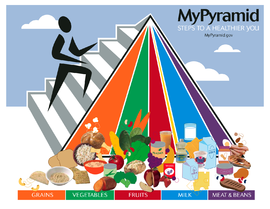
Nutrition is the science that studies how people eat affects their health and performance, such as foods or food components that cause diseases or deteriorate health (such as eating too many calories, which is a major contributing factor to obesity, diabetes, and heart disease). The field of nutrition also studies foods and dietary supplements that improve performance, promote health, and cure or prevent disease, such as eating fibrous foods to reduce the risk of colon cancer, or supplementing with vitamin C to strengthen teeth and gums and to improve the immune system.
Personal health depends partially on the social structure of one’s life. The maintenance of strong social relationships is linked to good health conditions, longevity, productivity, and a positive attitude. This is due to the fact that positive social interaction as viewed by the participant increases many chemical levels in the brain which are linked to personality and intelligence traits. Essentially this means that positive reinforcement from a third party make one more socially adept, in control, and relaxed physically and mentally, all of which are proven to affect the nervous system (UHF).
[edit] Sports nutrition
Sports nutrition focuses the link between dietary supplements and athletic performance. One goal of sports nutrition is to maintain glycogen levels and prevent glycogen depletion. Another is to optimize energy levels and muscle tone. An athlete's strategy for winning an event may include a schedule for the entire season of what to eat, when to eat it, and in what precise quantities (before, during, after, and between workouts and events). Participants in endurance sports such as the full-distance triathlon actually eat during their races. Sports nutrition works hand-in-hand with sports medicine.


No comments:
Post a Comment